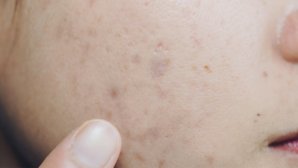An adrenal fatigue diet is a food-based strategy to improve stress on the adrenal glands. The adrenal glands are small organs located above your kidneys. Their purpose is to make hormones that help your body burn fat and protein, regulate sugar and blood pressure, and respond to stress.
Although adrenal fatigue is not a proper medical diagnosis and is not endorsed by most healthcare professionals do not endorse, it is claimed to happen when your adrenal glands are unable to function properly. The adrenal fatigue diet is supposed to promote the proper functioning of the adrenal glands.
Significance of Adrenal Fatigue DietAn adrenal fatigue diet aims to help your body maintain healthy blood sugar and support balanced cortisol levels. The goal is to increase your energy levels naturally, so you do not have to burn your stored nutrients. The adrenal fatigue diet has not been checked for its capacity to reduce stress on the adrenal glands till now. Yet, it has been demonstrated that eating a balanced diet and embracing healthy lifestyle changes can help you to have an improved outlook mentally and physically. All that being said, if you feel like having adrenal fatigue, it is best to talk with your healthcare provider to determine whether other health problems could also be contributing to your symptoms.
This diet plan plays a role in many other healthy, balanced diets by promoting lots of stable energy to your body.
If you are wondering, consuming processed foods, refined sugars, alcohol, and caffeine increases cortisol with food, leading to unhealthy crashes.
Foods To EatA well-balanced meal is the most effective way to help your well-being and direct your sugar levels. Specialists suggest adjusting your nutrient-rich sources of protein, healthy fats, and carbohydrates. This adrenal fatigue diet gives guidelines just like other balanced diets. To get started with treating adrenal fatigue through diet, try adding more of the following to your meal:
- lean sources of protein
- vegetables
- whole grains
- healthy fats
You can get the necessary nutrients from the following sources:
- protein sources such as fish, lean meats, dairy, eggs, nuts, and legumes
- vegetables, especially leafy greens, brightly colored, non-starchy ones
- whole grains
- healthy fats like avocado, olive oil, fatty fish, flaxseed oil, grapeseed oil
- fruits, especially pears, plums, apples, cherries, mango, papaya, and kiwi but overeating may raise blood sugar levels
- relatively low-sugar fruits
- sea salt in moderation
Keep in mind that it's also essential to remain hydrated. Lack of hydration can impact your anxiety and prompt your adrenal organs to produce more cortisol. What you eat is important but when you eat is equally important for any adrenal fatigue diet. Eating balanced meals at regular time intervals helps to keep your blood sugar steady. It may help to have breakfast and eat regularly throughout the day. Skipping breakfast or any other meal forces your body to burn stored nutrients and may lead to reducing your energy levels. Eating balanced meals and snacks after equal intervals can help you maintain your energy levels all day. Therefore, please make sure to eat breakfast and try your best not to skip meals.
You can check the most recent Dietary Guidelines for Americans for more details on which foods you should include in a well-balanced meal plan to support health. Any nutritious, balanced diet will likely promote your immune system, sense of well-being, and overall health.
Foods To AvoidSuppose you have decided to start a diet for adrenal fatigue. In that case, it is usually suggested to limit the intake of the below-mentioned items to avoid sudden fluctuations in your blood sugar and energy levels:
- white flour
- white sugar
- soda
- processed food
- fast food
- fried food
- artificial sweeteners
- alcohol
- caffeine
- drugs


















































